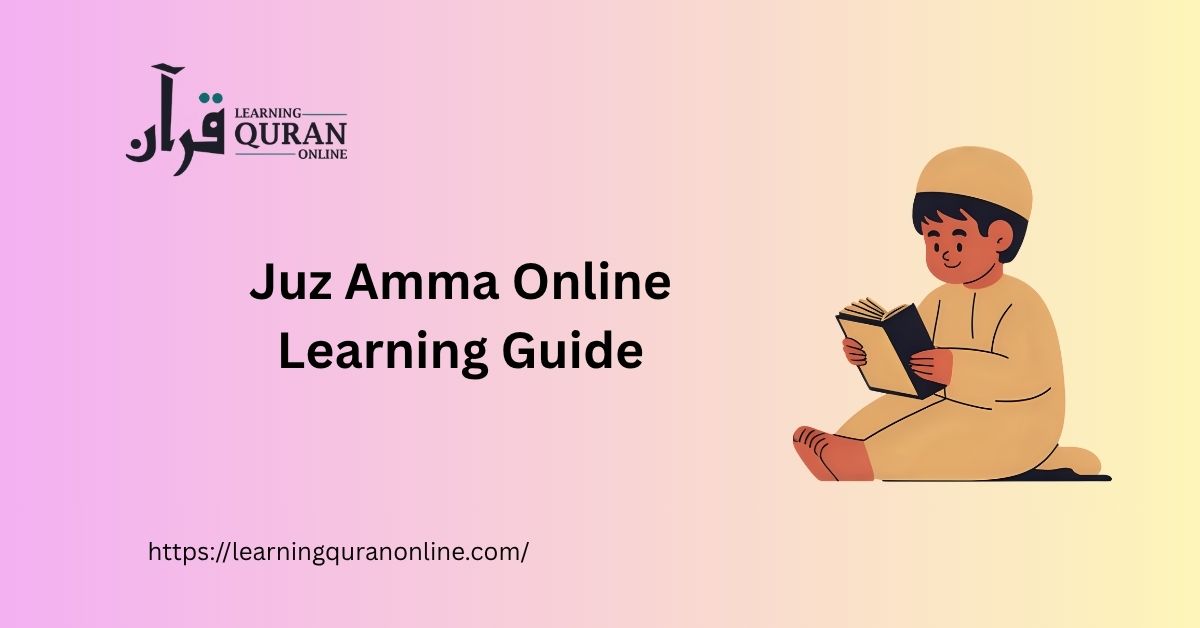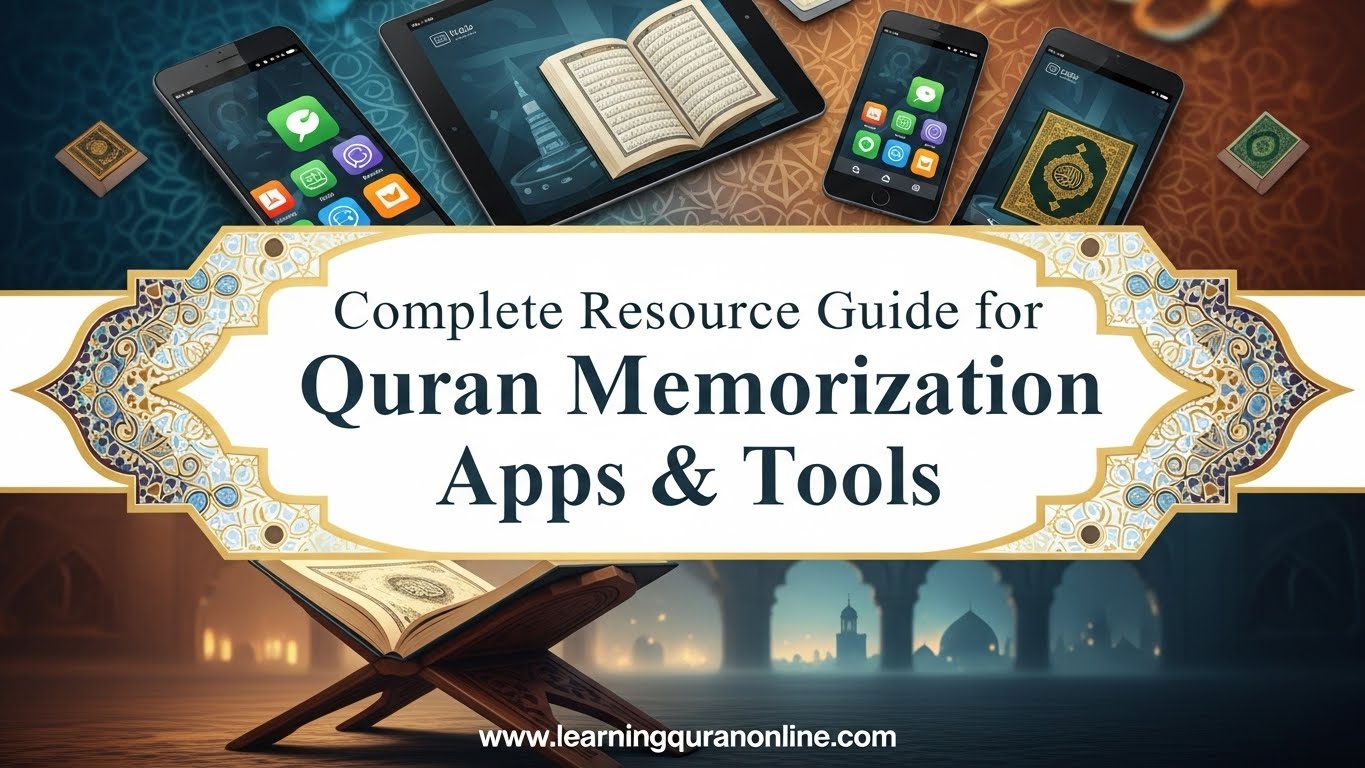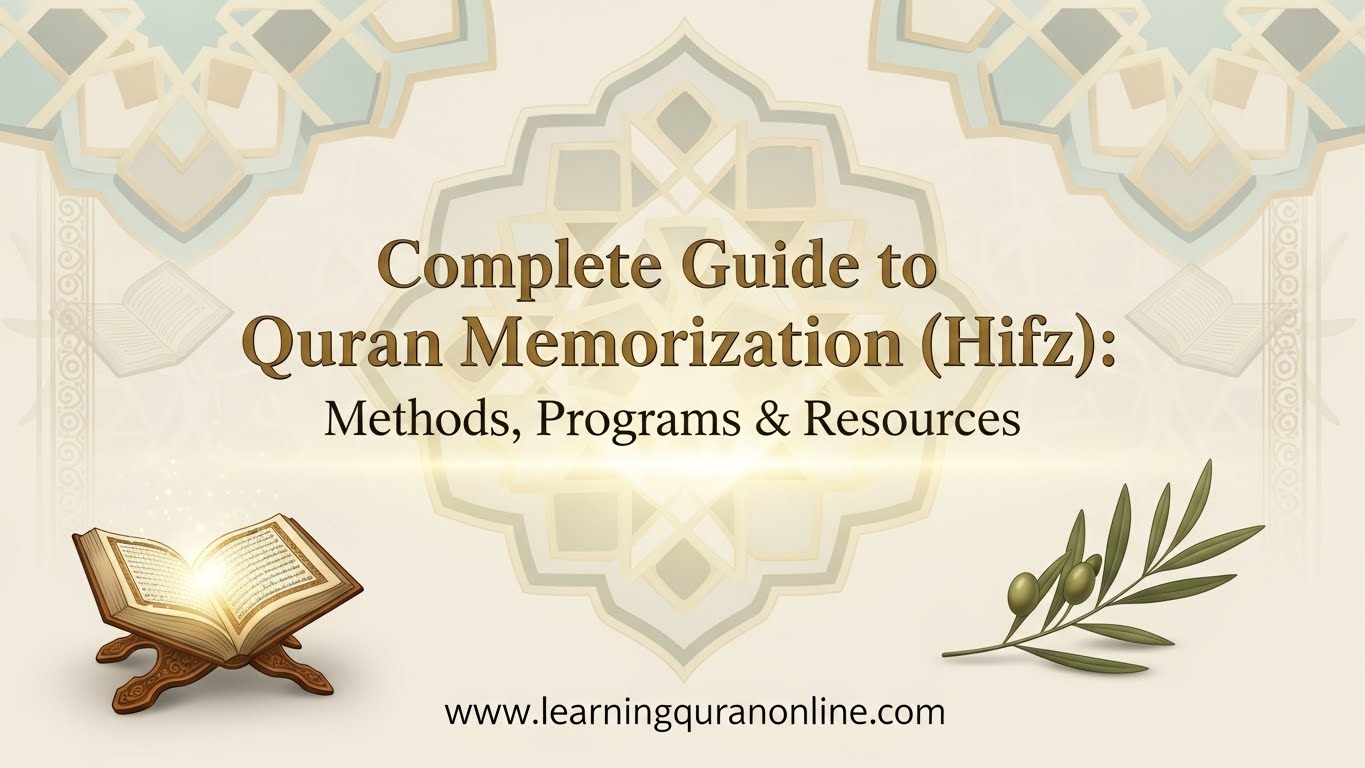Table of Contents
ToggleWhy Learn Juz Amma Online?
Learning Juz Amma online is flexible, accessible, and often more affordable than in-person classes. Online Juz Amma courses allow students to practice with native Arabic speakers, access high-quality audio recitation, and use interactive tools like flashcards and spaced repetition. Whether you are a parent arranging Quran lessons for your child or an adult learner looking to memorize short surahs, online learning brings expert teachers and digital resources to your fingertips.
Key Benefits of Juz Amma Online Learning
- Flexible Scheduling: Learn at your own pace with lessons that fit your daily routine.
- Access to Native Tutors: Improve pronunciation and tajweed with qualified Quran teachers.
- Multimedia Resources: Use recorded recitations, apps, and interactive exercises to reinforce learning.
- Personalized Learning Paths: Tailored memorization plans and corrective feedback for recitation.
- Community and Accountability: Join group classes or study circles for motivation and regular practice.
Essential Keywords & Topics to Look for in a Juz Amma Course
When evaluating online programs, look for courses and materials that include these topics and keywords: Juz Amma online, Juz 30 learning, tajweed rules, Arabic pronunciation, surahs of Juz Amma (e.g., An-Naba, An-Nazi’at, Al-Fatihah is in Juz 1 but Juz Amma includes short surahs like Al-Ikhlas, Al-Falaq, An-Nas), Quran memorization techniques, audio recitation, beginner-friendly lessons, flashcards, spaced repetition, and teacher-led recitation correction.
Choosing the Right Juz Amma Online Course
Not all online Quran courses are the same. Consider the following criteria when choosing a Juz Amma learning program:
- Qualified Teachers: Look for certified tajweed teachers or native Arabic speakers with experience teaching Juz Amma.
- Lesson Structure: Does the course offer a clear curriculum covering recitation, tajweed, and memorization? A good curriculum breaks the juz into manageable surahs and verses.
- Class Format: Decide between one-on-one tutoring or group classes — both have advantages. One-on-one gives personalized feedback; group classes provide community support.
- Resources Provided: Check for downloadable PDFs, audio recitations, practice worksheets, and mobile app access.
- Trial Lessons & Reviews: Many platforms offer trial sessions — use them to assess teaching style and platform usability. Read student reviews and testimonials.
Tools & Resources for Effective Juz Amma Study
A combination of digital tools and traditional methods yields the best results. Essential resources include:
- Quran Apps: Apps with tajweed rules, word-by-word translation, and audio playback (repeat and slow-play features).
- Audio Libraries: Recitations by different qaris to learn proper melodious recitation and rhythm.
- Flashcards & Spaced Repetition: Use SRS apps to retain short surahs and key vocabulary.
- Printable Qur’an Sheets: Visual aids that highlight tajweed markings and verse segmentation.
- Online Tutors & Platforms: Live feedback on pronunciation, tajweed correction, and tailored memorization plans.
Effective Learning Strategies for Juz Amma (Juz 30)
The shortest surahs are often easiest to memorize, but still require strategy. Here are proven methods to accelerate Juz Amma learning:
- Segmented Memorization: Break each surah into small, repeated lines. Memorize by phrases before linking the entire surah.
- Daily Short Sessions: 15–25 minutes daily is more effective than long, irregular sessions. Consistency builds retention.
- Active Recitation: Read aloud, record yourself, and compare with a qualified reciter to self-correct errors in tajweed and pronunciation.
- Use Repetition with Understanding: Learn translations and brief context to connect meaning with words — this improves recall.
- Peer Practice: Recite to a teacher or study partner regularly for accountability and correction.
Tajweed & Pronunciation Tips for Juz Amma
Proper tajweed ensures your recitation is accurate and beautiful. Focus on these core tajweed aspects:
- Makhraj (Articulation Points): Practice the correct mouth and throat positions for letters like خ, غ, ق, ع, ح.
- Sifaat (Letter Qualities): Observe qualities like strength (shiddah), softness (rakhawah), and aspiration (hams).
- Madd (Prolongation): Learn where to elongate vowels and the different types of madd.
- Stopping Rules (Waqf): Master silent and pronounced stops to maintain meaning and rhythm when reciting in prayer or otherwise.
- Listen & Imitate: Repeatedly listen to skilled reciters and mimic their cadence and pauses.
Memorization Techniques Specific to Juz Amma
Juz Amma contains many short chapters, which makes it ideal for memorization. Use these tailored techniques:
- Chunking: Memorize by verses and then connect verse-by-verse.
- Anchor Surahs: Start with frequently used surahs (Al-Falaq, An-Nas, Al-Ikhlas) to build confidence.
- Write to Remember: Writing verses by hand reinforces memory and recognition of Arabic script.
- Use Meaningful Associations: Link phrases with brief translations or stories to create stronger memory hooks.
- Daily Revision Routine: Allocate time each day solely for revision of previously memorized surahs to prevent forgetting.
30-Day Sample Study Plan for Juz Amma
The following is a sample 30-day plan suitable for beginners who can dedicate 20–30 minutes daily. Adjust pace to your needs:
- Days 1–3: Learn and memorize the shortest surahs (e.g., An-Nas, Al-Falaq, Al-Ikhlas) with tajweed focus.
- Days 4–9: Add the next five short surahs; revise earlier ones daily using audio repetition.
- Days 10–15: Continue memorizing additional surahs; begin linking memorized surahs sequentially.
- Days 16–22: Focus on slightly longer surahs, practice stopping rules, and longer madd occurrences.
- Days 23–27: Complete remaining surahs in Juz Amma; intensify revision sessions twice daily.
- Days 28–30: Consolidation — recite whole Juz Amma in sequence, record for teacher feedback, and correct errors.
Common Mistakes to Avoid When Learning Juz Amma Online
Avoid these pitfalls to make your online Juz Amma learning more productive:
- Skipping Tajweed: Memorizing without proper Tajweed leads to entrenched pronunciation mistakes.
- Inconsistent Practice: Irregular study undermines retention; short daily practice is essential.
- Overloading Sessions: Trying to memorize too much in one sitting reduces quality and increases frustration.
- Ignoring Meaning: Memorizing words without understanding diminishes spiritual connection and recall.
- Relying Only on One Resource: Combine audio, teachers, apps, and print to cover all angles of learning.
Frequently Asked Questions (FAQs)
How long does it take to memorize Juz Amma?
Time varies by individual. With consistent daily practice (20–30 minutes), most beginners can memorize the entire Juz Amma in 3–6 weeks. Those with prior Arabic familiarity or more practice time can achieve it faster.
Do I need to know Arabic to learn Juz Amma online?
Basic Arabic familiarity helps but is not necessary. Many online courses teach pronunciation, tajweed, and translation simultaneously, making Juz Amma accessible to non-Arabic speakers.
What is the best age to start learning Juz Amma?
Children can start at a very young age with short daily lessons; many begin formal memorization between ages 5–8, depending on readiness. Adults can start anytime — it’s never too late.
Start Learning Online Quran from the Best LQO Online Quran Academy!
Conclusion — Start Your Juz Amma Online Journey Today
Juz Amma online learning offers flexibility, expert instruction, and modern tools to help you memorize and recite Juz 30 with accuracy and confidence. Choose a program that emphasizes tajweed, provides consistent teacher feedback, and supports memorization through audio and spaced-repetition tools. With a clear plan, daily practice, and the right resources, you can master the surahs of Juz Amma and make them part of your daily worship and study.
Ready to begin? Try a trial lesson with a qualified online Quran tutor, download an audio recitation app, and start with the three short surahs today. Small, consistent steps will lead to lasting progress.
















